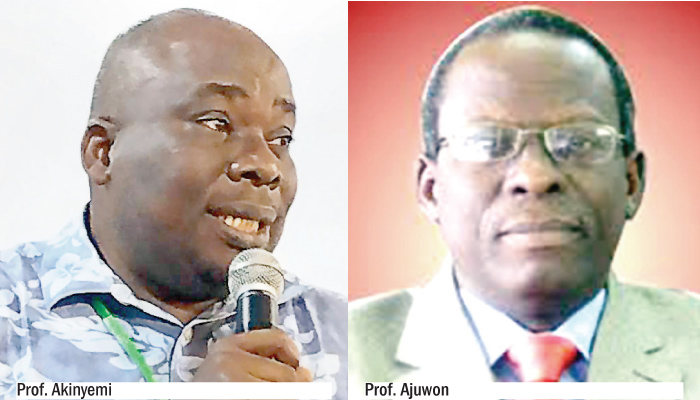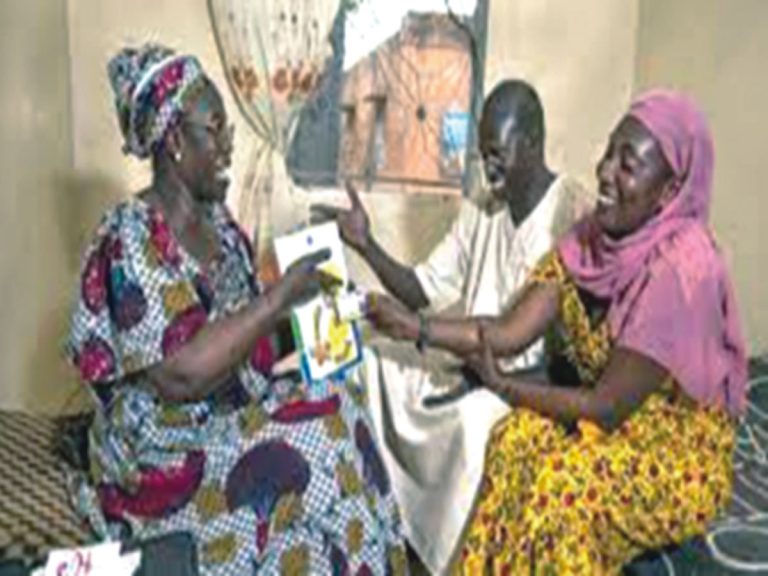AT this very moment, somewhere around the world, a woman or girl is experiencing some form of s3xual violence, with even more grim outcomes like unplanned pregnancy and abortion.
In Nigeria, abortion is illegal, carrying a heavy jail term of up to fourteen years imprisonment, except when it is carried out to save the life of a pregnant woman.
Despite the criminalisation of abortion, more than half of all unintended pregnancies in Nigeria are resolved using abortion. In most cases, such abortion practices are unsafe and often require treatment for complications.

The World Health Organisation (WHO) estimates that unsafe abortions contribute significantly to maternal mortality in Nigeria. Legal restrictions, socio-cultural barriers and inadequate healthcare infrastructure exacerbate the problem, leaving many women with no safe options.
Unplanned pregnancy and abortion decisions and contexts in Nigeria were the theme of the Second Annual National Forum of the Partnership for Advancing Abortion Research and Reducing Unsafe Abortion in Nigeria (PAARRUAN).
Its thrust, among others, is to look into new scientific evidence on abortion and reducing unsafe abortion practices; unveil myths and misconceptions, particularly on abortion, and to develop the capacity of young researchers and stimulate their interest in reproductive health issues, particularly abortion.
Sunday Adedini, a professor of Demography and social statistics at the Federal University, Oye-Ekiti, in a situational analysis of unplanned pregnancies and abortion in Nigeria, said that in Nigeria, currently, an estimated 2 million abortions take place every year out of the over 7 million pregnancies that occur yearly in the nation.
According to him, “More than a quarter of these pregnancies are unwanted and about 2 million are resolved through abortion. Many of those abortions are unsafe, particularly because abortion is illegal in Nigeria, except to save the life of the mother. So people do it clandestinely, and many of them in unsafe environments and by unqualified persons, leading to unwarranted deaths.”
Professor Adedini said the cases of unwanted pregnancies, the reason for unsafe abortion, can be stemmed by investing heavily in family planning methods.
“If we pull all the resources together, the 1% of the annual health budget on family planning and also the 1% of Basic Health Care Providence Fund (BHCPF), which involves all states on all the key issues, we’re going to cut safe abortion by even more than half. And then modern contraception prevalence rate will increase from 15 percent to as high as 36 percent by the year 2030,” he added.
He stated that access to high-quality family planning is the game-changer, particularly postpartum family planning and post-abortion family planning, through counselling, contraceptive services, and follow-up care across the country.
“Postpartum family planning and post-abortion care have been established to be very effective in preventing unwanted pregnancy and unsafe abortion. The woman who has gone for post-abortion care is coming back very soon for another post-abortion care. And until possibly, the woman may die due to pregnancy and pregnancy-related causes,” he added.
Professor Adedini, however, said contraceptive use among women remains very low, with modern contraceptive prevalence rate at 15 percent and 21 percent unmet contraceptive need.
He quoted a report on the Family Planning Investment Case and Sustainability Plan for Nigeria, stating that the family planning users can go from 5.1 million users in 2018 to 6.8 million users, 13.1 million users and 17.5 million users, respectively, by 2030, going through the baseline, moderate and aggressive routes and proper investment.
“If we go through these different family planning scenarios, we’re going to have a 4.5 million and 5.1 million reduction in induced abortion going through the baseline and aggressive routes by 2030. Maternal mortality and child death will also be significantly reduced.
“So for every $1 investment in contraceptive use, you have a $69.3 return on investment. As of 2024, if we had had a percent of the federal government’s Health budget invested in family planning, we would have had $1.1 billion return on this investment.”
Once there is no unintended pregnancy, there will be no need for abortion. However, Dr Akin Bankole, a senior fellow at the Guttmacher Institute, stated that improving access to contraception should also be backed up with education on the importance of contraception, particularly for women.
“A lot of women who are supposed to be using contraceptives are not because of myths and misperceptions about the side effects of contraceptives. Many of the methods are safe. If properly administered, a woman can get a contraceptive that is best for her. So we need education to improve this.
“Then we need to ensure that for those who may still need abortion for whatever reason, they can have it safely. And the hospital should be prepared to provide adequate post-abortion care to those who might still have an unsafe abortion.”
Dr Bankole stated that common drivers of unwanted pregnancy and unsafe abortion remain the same in Nigeria, although some factors like poverty have been aggravated by the worsening economic situation in the country.
“So, whatever the factor may be, what is more important is for us to be proactive and for us to also ensure that there is adequate communication between partners so that appropriate decisions can be made ahead of a pregnancy,” he added.
Undoubtedly, generating appropriate data and evidence for action to stem unwanted pregnancies and unsafe abortions is vital. Professor Ademola Ajuwon, speaking on the Capacity Strengthening for Abortion Research in Nigeria (CSARN) project, stated that historically, people don’t want to come into abortion research because the subject itself is taboo even for researchers.
According to him, “The investment in these young people is an investment for the future. If they stay in this field, they’ll continue to do research to address the concerns and other gaps, including information. The information is desirable, but it is not available, on sexual health with special focus on sexual behaviour, contraceptive use, unplanned pregnancy, abortion, and post-abortion care.”
The CSARN project was developed by a trio, Centre for Research, Evaluation Resources and Development (CRERD), Academy for Health Development (AHEAD) and Guttmacher Institute to develop the capacity of young researchers and stimulate their interest in abortion research.
Professor Akanni Akinyemi, CRERD’s Principal Investigator, said people want to have sex, and the pregnancy that happens afterward becomes a problem for a large number of people for different reasons.
He stated that unwanted pregnancy happens in all age groups, educational levels and socio-economic classes, even though, for cultural and religious reasons, people don’t want to talk about it and do nothing about it.
Akinyemi, the chair of the Union of African Population panel on sexual and reproductive health, added: “So, we will continue to have the problem of young people who are pregnant when they don’t plan it and whose pregnancy is going to jeopardize their future ambition. Due to cultural issues and interpretation from the religious centre, people are likely to pretend that the issues are not there.
“So, we need to remove the veil of our religious and cultural biases; we need to remove the veil of myths and misconceptions about the issue. Are there no safe things for them to prevent it, what is called in public health, harm reduction practices?
“Nobody is saying procure abortion, that’s not the issue. What we are trying to say is that when people want to make choices, we should allow them to make the right choices that will not endanger their lives, rather than we continue to hide under culture, under religion, and we continue to go for clandestine abortion practices that continue to endanger their lives.”
“That is why we have this kind of conference: to update us on any new evidence based on the changes and the dynamics that we are experiencing in society every year. It is to gain knowledge from evidence that has been proven, rather than myths or misconceptions, to guide our direction as a nation.”
Moreover, Dr Funmi Olaolorun, a public health expert at the University College Hospital (UCH), Ibadan, linked the low uptake of contraception to the absence of a fertility planning culture in Nigeria, so the need to be more reactive than proactive regarding family planning.
“This is probably because in many families, and this probably goes for a lot of sub-Saharan Africa, they do not sit down and talk about the number of children they would like to have, either during courtship or immediately after marriage. And so they just accept things as they come,” she stated.
Dr Olaolorun stated that to enjoy sexual health, individuals need several rights, including the right to information and education to make informed decisions, backed up by sexual health policies that are comprehensive and inclusive.
According to her, such sexual health policies also must be integrated into other policies to cover sexual and reproductive health, rights and justice, rather than pulling out sexual health policies, even as it should be person-centred, empowering and remove barriers for all to be effective.
“The development of the policy would also be associated with setting funds aside for the implementation and evaluation of the policy. And once you have that full spectrum, it will help to reduce maternal morbidity and mortality,” she added.
Moreover, she added that such a policy on sexual and reproductive health, rights and justice, since it will address the lifespan and the life course, will also tackle the issue of teenage pregnancy.
ALSO READ FROM NIGERIAN TRIBUNE
